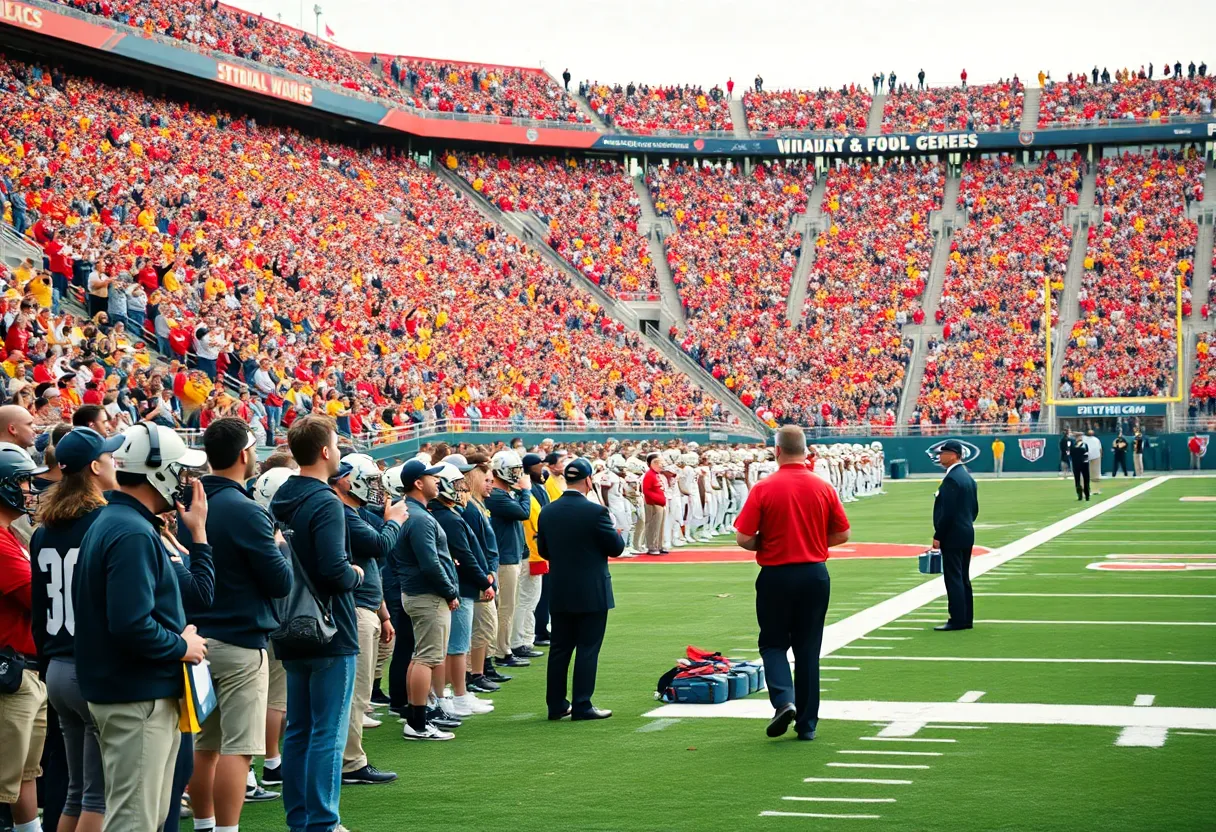News Summary
Tennessee is witnessing a heated debate as lawmakers introduce House Bill 337 to block guaranteed income programs. While initiatives aim to alleviate poverty, concerns about dependency and community empowerment are raised. Memphis begins its pilot project in the 37208 area, providing cash to families while gathering data on well-being. The contrasting perspectives highlight Tennessee’s challenges in addressing economic disparities and envisioning future solutions.
Tennessee’s New Debate: Guaranteed Income Programs Take Center Stage
Tennessee is buzzing with a hot topic lately as local lawmakers, Representative John Gillespie and Senator Brent Taylor, have jumped into action, introducing legislation that seeks to block local governments from rolling out guaranteed income programs. This proposed law, known as House Bill 337, has sparked quite a conversation, with intentions that reach deeper than just simple cash payments to residents.
What’s the Deal with Guaranteed Income?
Guaranteed income programs have emerged in various cities as a proactive approach to alleviate poverty by providing consistent, unconditional cash payments to individuals or families. In February, Memphis Mayor Paul Young floated an idea that would see designated residents receiving between $500 to $1,000 every month. The goal? Lift certain families out of poverty and bolster their economic stability.
However, not everyone is on board with this vision. Senator Taylor has voiced skepticism about such initiatives, dubbing them a “misguided use of resources.” He has raised concerns that this type of support could inadvertently hinder Memphis’s development. His perspective emphasizes empowering community members instead of creating dependence on welfare systems.
Local Initiatives Underway
Interestingly enough, despite the pushback from some lawmakers, the 37208 zip code in North Nashville is gearing up for an exciting pilot program. This initiative, led by Moving Nashville Forward, aims to explore the concept of guaranteed income by distributing $1,000 monthly to 100 families over ten months, starting this November. This project not only targets poverty but also aims to gather vital data on community wellbeing.
The 37208 area is facing notable economic challenges, with a significant 70% of its population being Black and its poverty rate sitting at double the broader Nashville average. Organizers behind the project explain that lingering economic and racial inequalities, shaped by historic issues like redlining and strict policing, necessitate bold new solutions.
Support and Participation
Program organizers, Jamel Campbell-Gooch and Read Ezell, believe that these unconditional cash transfers can effectively round out current social safety nets. They assert that by simplifying access, their initiative can help deliver support directly to those in need without putting hurdles in their way, like those often found in programs such as WIC and SNAP.
The excitement around the 37208 project is palpable, especially since it has met its initial fundraising target—raising over $50,000 through private donations and grassroots support. Applications for interested residents earning below $40,000 will kick off in September, potentially benefiting about half of households in the area.
More Than Just Cash: Evaluating Wellbeing
What sets the 37208 project apart is its commitment to thorough evaluation. Organizers plan to establish a control group to assess changes in factors like mental health, physical wellbeing, and overall quality of life. This data-driven approach echoes earlier successful projects, such as the Stockton Economic Empowerment Demonstration (SEED), which illustrated the positive impacts guaranteed income can have on participants’ economic stability and interpersonal relationships.
The Bigger Picture: Community Response and Future Implications
However, the discussion surrounding guaranteed income remains polarizing. Critics often highlight concerns that these programs might undermine existing social safety nets or perpetuate economic disparities, especially among marginalized groups. With ongoing debates about poverty alleviation strategies, it’s clear Tennessee is at a crossroads.
As community stakeholders, lawmakers, and residents weigh the pros and cons, questions about racial equity and effective poverty reduction continue to resound across the state. Will programs like House Bill 337 stifle creative solutions to economic hardship, or will they perhaps pave the way for more targeted and beneficial community initiatives?
Only time will tell how this conversation will unfold, but one thing is certain—the people of Tennessee are engaged, passionate, and ready to advocate for their needs in the face of changing economic landscapes.
Deeper Dive: News & Info About This Topic
HERE Resources
Memphis Confronts Affordable Housing Crisis
Additional Resources
- Local Memphis
- Tennessee Lookout
- AllianceBernstein
- Tennessean
- Money Talks News
- Wikipedia: Guaranteed Income
- Google Search: Guaranteed Income Tennessee
- Google Scholar: Guaranteed Income Programs
- Encyclopedia Britannica: Guaranteed Income
- Google News: Guaranteed Income Tennessee

Author: STAFF HERE MEMPHIS WRITER
The MEMPHIS STAFF WRITER represents the experienced team at HEREMemphis.com, your go-to source for actionable local news and information in Memphis, Shelby County, and beyond. Specializing in "news you can use," we cover essential topics like product reviews for personal and business needs, local business directories, politics, real estate trends, neighborhood insights, and state news affecting the area—with deep expertise drawn from years of dedicated reporting and strong community input, including local press releases and business updates. We deliver top reporting on high-value events such as Beale Street Music Festival, Elvis Week, and Memphis in May International Festival. Our coverage extends to key organizations like the Greater Memphis Chamber and the Memphis Convention & Visitors Bureau, plus leading businesses in logistics, healthcare, and music that power the local economy such as FedEx, St. Jude Children's Research Hospital, and AutoZone. As part of the broader HERE network, including HEREBristol.com, HEREChattanooga.com, HEREKnoxville.com, and HERENashville.com, we provide comprehensive, credible insights into Tennessee's dynamic landscape.






